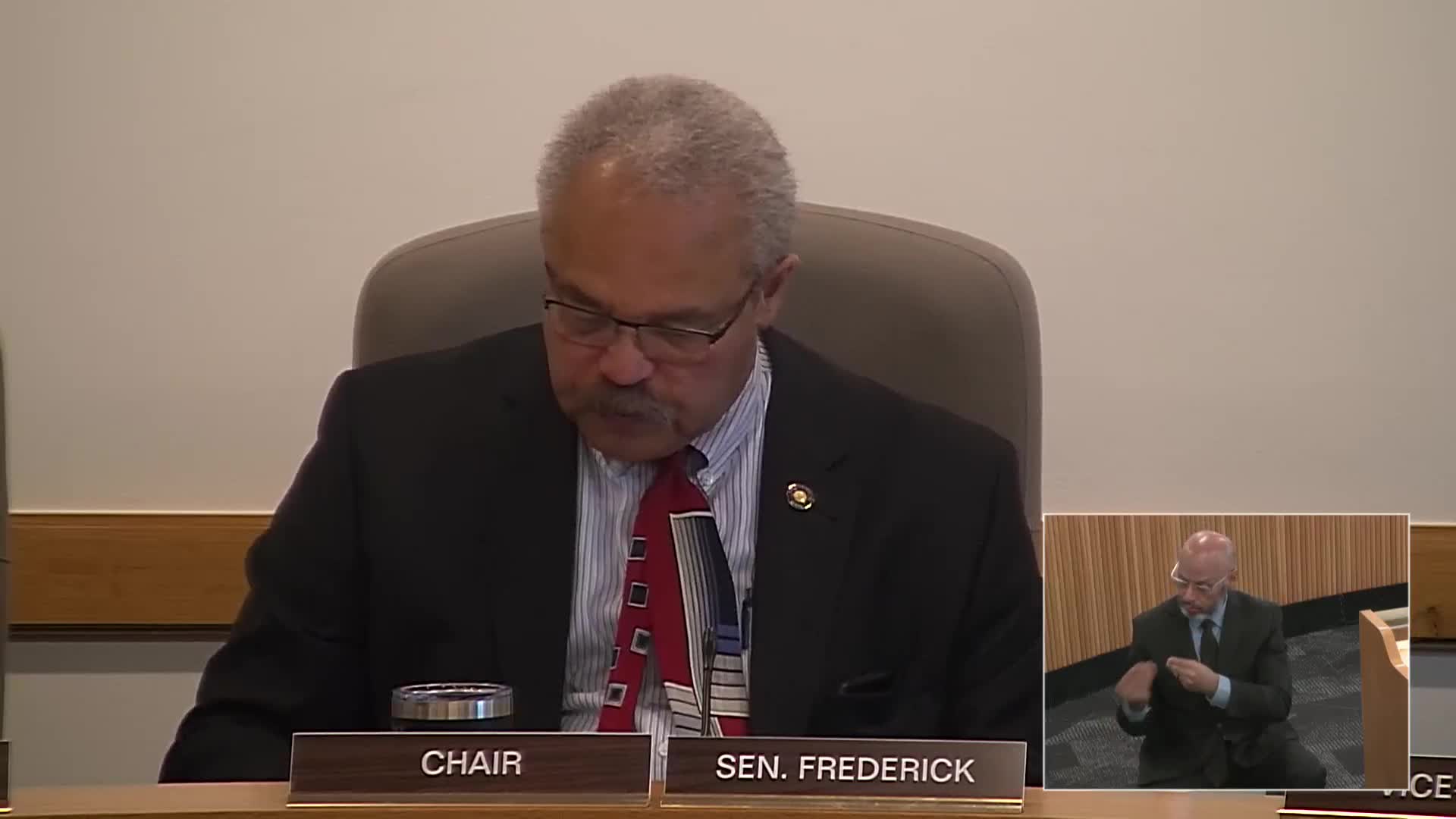Committee hears proposal to modernize Oregon Opportunity Grant awarding rules
April 23, 2025 | Education, Senate, Committees, Legislative, Oregon
This article was created by AI summarizing key points discussed. AI makes mistakes, so for full details and context, please refer to the video of the full meeting. Please report any errors so we can fix them. Report an error »

Chair Senator Frederick opened a public hearing on House Bill 3,025, which would change how the state awards the Oregon Opportunity Grant (OOG). Ellen (staff member) summarized the measure and Kyle Thomas, director of legislative and policy affairs for the Higher Education Coordinating Commission, described the bill’s four main changes.
HEC Director of Legislative and Policy Affairs Kyle Thomas told the committee that the bill would remove the statutory “shared responsibility” formula for calculating awards and instead require HEC to “determine award amounts based on enrollment level and financial need.” He said the current statutory formula treats student wages and loan contributions as offsets to state aid and was set when the total cost of attendance was far lower than today. “Eliminating the formula does not reduce student or shared responsibility for educational expenses, but merely allows HEC to continue to employ the modern, updated award methodology we use in our current rules,” Thomas said.
Thomas said HEC currently administers the OOG under agency rule with a base-plus tuition-differential model and that maximum awards run about $3,900 for a community college student and about $7,500 for a public or private university student attending full time with high financial need. He described four changes in the bill: removing the outdated statutory methodology, decoupling OOG eligibility from the state’s tuition-equity statute for noncitizen students, allowing prorated awards tied to actual credit loads rather than only full- or half-time tiers, and permitting HEC by rule to make selected nondegree certificate programs eligible for OOG awards.
Juan Baez Adebelo, director of the Office of Student Access and Completion, said HEC has “not been able to determine at this time how many more students would be eligible” under the bill but that it creates “greater flexibility for students who are currently eligible,” especially those in short-term certificate programs that currently are not eligible for federal Title IV or state aid. Baez Adebelo said the change would let some students use OOG funding for career-oriented certificates while preserving remaining OOG eligibility for future use.
Senators asked about outcomes data and prioritization. Thomas and Baez Adebelo pointed to the Oregon Opportunity Grant annual report on OregonStudentAid.gov, which shows that receipt of state financial aid correlates with higher completion rates; Baez Adebelo said he did not have off‑the‑top numbers but that “for every incremental thousand dollars, there’s a corresponding percentage increase of the likelihood of students’ completion” and that OOG prioritization would continue to be need‑based (students filing FAFSA or ORSAA and with lower student aid indexes would receive priority).
Several senators and testifiers characterized the bill as a technical modernization meant to align statute with current practice and to close an eligibility gap affecting some noncitizen students. No formal action or vote on the bill occurred; the committee closed the public hearing and moved to the next item.
HEC Director of Legislative and Policy Affairs Kyle Thomas told the committee that the bill would remove the statutory “shared responsibility” formula for calculating awards and instead require HEC to “determine award amounts based on enrollment level and financial need.” He said the current statutory formula treats student wages and loan contributions as offsets to state aid and was set when the total cost of attendance was far lower than today. “Eliminating the formula does not reduce student or shared responsibility for educational expenses, but merely allows HEC to continue to employ the modern, updated award methodology we use in our current rules,” Thomas said.
Thomas said HEC currently administers the OOG under agency rule with a base-plus tuition-differential model and that maximum awards run about $3,900 for a community college student and about $7,500 for a public or private university student attending full time with high financial need. He described four changes in the bill: removing the outdated statutory methodology, decoupling OOG eligibility from the state’s tuition-equity statute for noncitizen students, allowing prorated awards tied to actual credit loads rather than only full- or half-time tiers, and permitting HEC by rule to make selected nondegree certificate programs eligible for OOG awards.
Juan Baez Adebelo, director of the Office of Student Access and Completion, said HEC has “not been able to determine at this time how many more students would be eligible” under the bill but that it creates “greater flexibility for students who are currently eligible,” especially those in short-term certificate programs that currently are not eligible for federal Title IV or state aid. Baez Adebelo said the change would let some students use OOG funding for career-oriented certificates while preserving remaining OOG eligibility for future use.
Senators asked about outcomes data and prioritization. Thomas and Baez Adebelo pointed to the Oregon Opportunity Grant annual report on OregonStudentAid.gov, which shows that receipt of state financial aid correlates with higher completion rates; Baez Adebelo said he did not have off‑the‑top numbers but that “for every incremental thousand dollars, there’s a corresponding percentage increase of the likelihood of students’ completion” and that OOG prioritization would continue to be need‑based (students filing FAFSA or ORSAA and with lower student aid indexes would receive priority).
Several senators and testifiers characterized the bill as a technical modernization meant to align statute with current practice and to close an eligibility gap affecting some noncitizen students. No formal action or vote on the bill occurred; the committee closed the public hearing and moved to the next item.
View full meeting
This article is based on a recent meeting—watch the full video and explore the complete transcript for deeper insights into the discussion.
View full meeting
